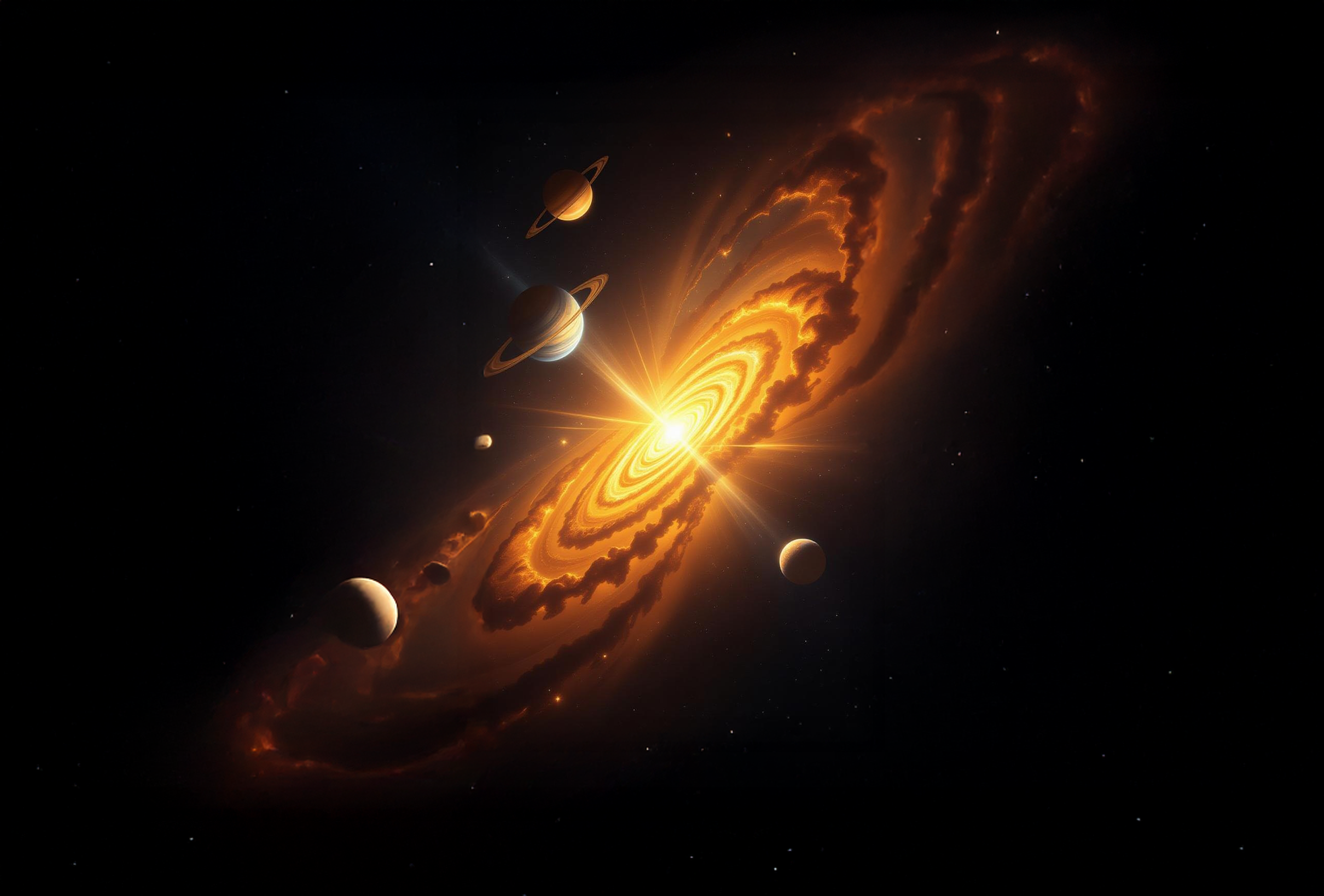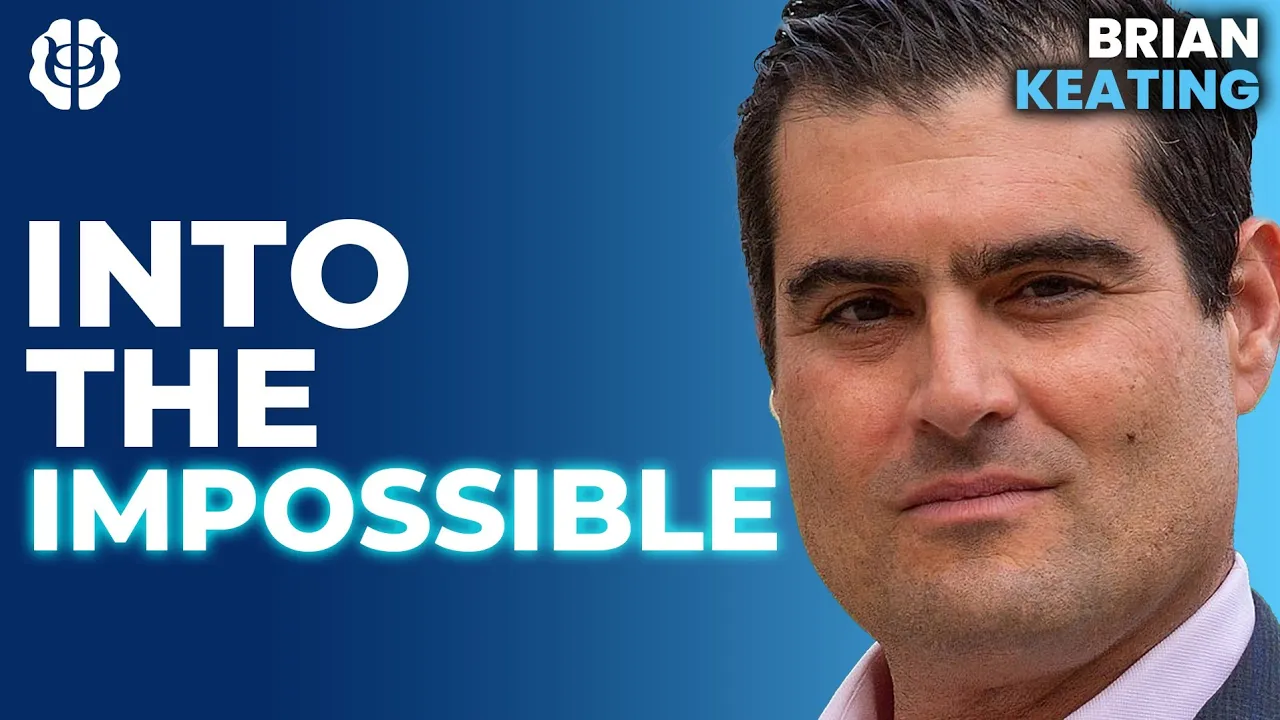Decoding Space, Time, and Matter: A Physicist's Perspective

Welcome to a deep dive into the fundamental building blocks of our universe! In this blog post, we'll explore the fascinating concepts of space, time, and matter through the lens of experimental physicist Brian Keating. Known for his work on the cosmic microwave background (CMB) and his engaging podcast "Into The Impossible," Keating offers a unique perspective on how we understand the cosmos. We'll delve into how he bridges the gap between experimental and theoretical physics, confronts misinformation, and fosters respectful scientific discourse. This post complements our latest podcast episode, Brian Keating: What Is Space, Time, & Matter? The Origin & Evolution Of The Universe, where we had the pleasure of discussing these topics directly with Brian. So, buckle up as we journey into the heart of physics!
Introduction: Decoding Space, Time, and Matter with Brian Keating
Our understanding of the universe is constantly evolving, driven by both theoretical breakthroughs and experimental observations. Physicists like Brian Keating stand at the forefront of this exploration, pushing the boundaries of what we know about space, time, and matter. In this post, we will unpack complex concepts, address common misconceptions, and celebrate the spirit of scientific inquiry, all inspired by our conversation with Brian Keating.
Who is Brian Keating? An Experimental Physicist's Perspective
Brian Keating is a Chancellor's Distinguished Professor of physics at the Center for Astrophysics & Space Sciences (CASS) in the Department of Physics at the University of California, San Diego. But more than just an academic title, Keating is a passionate explorer of the universe. His research focuses on the cosmic microwave background (CMB), the afterglow of the Big Bang, which provides invaluable insights into the origin and evolution of the universe. What sets him apart is his ability to communicate complex scientific ideas to a broad audience. He is also a writer and the best-selling author of one of Amazon Editors’ "Best Non-fiction Books of All Time", "Losing the Nobel Prize". He is also a successful podcaster. He embodies the spirit of scientific curiosity and the desire to share the wonders of the cosmos with the world.
What are Space, Time, and Matter?
Let's start with the basics. Space, in its simplest form, is the three-dimensional extent in which objects and events have relative position and direction. Time, on the other hand, is the indefinite continued progress of existence and events in the past, present, and future regarded as a whole. Matter is anything that has mass and takes up space. However, modern physics has shown us that these concepts are far more intertwined and complex than we initially thought. Einstein's theory of relativity demonstrated that space and time are not absolute but are relative to the observer's motion and gravity. Matter, as described by quantum mechanics, exhibits wave-particle duality and can be converted into energy, as famously expressed by the equation E=mc². Understanding these fundamental concepts requires a deep dive into both classical and modern physics.
Bridging the Gap: How Experimental Physicists Approach Theoretical Physics
Experimental and theoretical physics are two sides of the same coin. Theoretical physicists develop mathematical models and frameworks to explain the universe, while experimental physicists design and conduct experiments to test these theories. Brian Keating, as an experimental physicist, plays a crucial role in validating or challenging theoretical predictions. He designs experiments, collects data, and analyzes results to either support or refute existing theories. This iterative process is essential for the advancement of scientific knowledge. Keating's approach involves a healthy dose of skepticism and a commitment to empirical evidence. He uses observations to constrain theoretical models and guide future research.
The Impact of 'Into The Impossible' on Brian Keating's Perspective
"Into The Impossible" is more than just a podcast; it's a platform for exploring the frontiers of science, philosophy, and technology. Hosting the podcast has undoubtedly broadened Brian Keating's perspective. By engaging with a diverse range of guests, from leading scientists to philosophers and artists, he is exposed to different viewpoints and ideas. This cross-disciplinary dialogue challenges his own assumptions and encourages him to think outside the box. The podcast also provides a unique opportunity to communicate complex scientific concepts to a wider audience, fostering a greater appreciation for the wonders of science and the importance of critical thinking.
Demystifying Science Through Podcasting
Science can often seem intimidating and inaccessible to the general public. Podcasting offers a powerful tool for demystifying science and making it more engaging and relatable. Brian Keating's "Into The Impossible" achieves this by presenting scientific concepts in an accessible and conversational manner. He breaks down complex ideas into digestible pieces, uses analogies and metaphors to aid understanding, and emphasizes the human stories behind scientific discoveries. By showcasing the passion and curiosity of scientists, he inspires listeners to explore the world around them and embrace the spirit of scientific inquiry. The podcast format allows for in-depth discussions and nuanced perspectives, fostering a deeper understanding of the scientific process.
Respectful Discourse: Challenging Inaccurate Viewpoints
In an era of misinformation and alternative facts, it is crucial to challenge inaccurate viewpoints with respectful and open discourse. Brian Keating emphasizes the importance of evidence-based arguments and critical thinking. When confronted with inaccurate claims, he avoids personal attacks and instead focuses on presenting factual information and logical reasoning. He encourages listeners to question everything, including his own views, and to seek out credible sources of information. By fostering a culture of respectful debate and intellectual honesty, he promotes a more informed and rational understanding of the world.
The Art of Podcasting in the Scientific Niche
Podcasting in the scientific niche requires a unique blend of expertise, communication skills, and passion. Brian Keating excels in this field by combining his deep scientific knowledge with his engaging personality and storytelling abilities. He understands the importance of tailoring content to his audience, avoiding jargon and technical language that might alienate listeners. He also recognizes the power of narrative in conveying scientific ideas, weaving compelling stories that capture the imagination and spark curiosity. Furthermore, he actively engages with his audience, responding to questions and feedback, creating a sense of community around his podcast.
From 'Open The Pod Bay Doors' to 'Into The Impossible': The Origin of a Podcast
The name "Into The Impossible" is a clever nod to the iconic line "Open the pod bay doors, HAL" from Arthur C. Clarke's "2001: A Space Odyssey." This line encapsulates the spirit of exploration and the pursuit of seemingly impossible goals. Brian Keating was inspired by this concept and sought to create a podcast that delves into the realm of the unknown, exploring the boundaries of science, technology, and human potential. The podcast aims to inspire listeners to embrace challenges, question assumptions, and strive for the impossible. The name itself serves as a reminder that even the most ambitious goals can be achieved through dedication, perseverance, and a relentless pursuit of knowledge.
Historic Moments: Hubble Ultra Deep Field & Cosmic Microwave Background
The Hubble Ultra Deep Field and the Cosmic Microwave Background (CMB) represent two of the most significant moments in the history of astronomical observation. The Hubble Ultra Deep Field, captured by the Hubble Space Telescope, revealed thousands of galaxies in a tiny patch of sky, providing a glimpse into the vastness and complexity of the universe. The Cosmic Microwave Background, the afterglow of the Big Bang, offers a snapshot of the universe in its infancy, providing crucial evidence for the Big Bang theory and insights into the formation of structures in the universe. Brian Keating's research focuses on the CMB, using it to learn about the origin and evolution of the universe. These historic moments highlight the power of human ingenuity and the relentless pursuit of knowledge that drives scientific discovery.
The Fundamental Nature of Reality
What is the fundamental nature of reality? This question has puzzled philosophers and scientists for centuries. Modern physics, particularly quantum mechanics and general relativity, has challenged our classical understanding of reality. Quantum mechanics suggests that reality is probabilistic and observer-dependent, while general relativity describes gravity as a curvature of spacetime. These theories have led to profound questions about the nature of space, time, and matter, and the role of consciousness in shaping reality. Brian Keating explores these complex questions on "Into The Impossible," engaging with leading thinkers to delve into the deepest mysteries of the universe. While there are no easy answers, the pursuit of these questions is essential for expanding our understanding of the cosmos and our place within it.
Debunking Misinformation: The Importance of Credible Scientific Sources (Terrence Howard example)
The spread of misinformation can have serious consequences, particularly in the realm of science. It is crucial to rely on credible scientific sources and authorities when seeking information about complex topics. Brian Keating addresses this issue directly, debunking pseudoscientific claims and promoting evidence-based reasoning. A notable example discussed on "Into The Impossible" involves actor Terrence Howard's controversial statements about science on the Joe Rogan Experience (JRE). Keating carefully dissects Howard's claims, highlighting the flaws in his logic and the lack of scientific evidence to support his assertions. He emphasizes the importance of consulting with experts in the field and relying on peer-reviewed research to form informed opinions. This example underscores the need for critical thinking and media literacy in navigating the complex landscape of scientific information.
Religion, Atheism, and the Dialogue with Sam Harris & Lawrence Krauss
The relationship between science and religion is a complex and often contentious topic. Brian Keating engages in respectful dialogue with both religious and atheist thinkers, exploring the philosophical and ethical implications of scientific discoveries. He has interviewed prominent figures such as Sam Harris and Lawrence Krauss on "Into The Impossible," discussing the compatibility of science and religion, the nature of consciousness, and the meaning of life. These conversations highlight the importance of open-mindedness and intellectual humility in addressing these fundamental questions. While science and religion may offer different perspectives on the nature of reality, they can both contribute to a deeper understanding of the human condition.
The Success of 'Into The Impossible': Brian's Reflections
The success of "Into The Impossible" is a testament to Brian Keating's ability to communicate complex scientific ideas in an engaging and accessible manner. He attributes the podcast's popularity to its focus on curiosity, intellectual honesty, and respectful dialogue. He strives to create a platform where listeners can explore the frontiers of science, philosophy, and technology without fear of judgment or ridicule. He also emphasizes the importance of authenticity and vulnerability, sharing his own struggles and triumphs in the pursuit of knowledge. By fostering a sense of community and encouraging critical thinking, he has created a podcast that resonates with a wide audience of curious minds.
Avoiding Audience Capture: Trust, Evidence, and Extraterrestrial Life
In the age of social media and echo chambers, it is crucial to avoid audience capture – the tendency to cater to the biases and preferences of one's audience at the expense of intellectual honesty and objectivity. Brian Keating is acutely aware of this danger and strives to maintain his independence and integrity. He emphasizes the importance of relying on evidence-based arguments and being willing to challenge his own assumptions, even if it means disagreeing with his audience. One area where this is particularly relevant is the search for extraterrestrial life. While he acknowledges the possibility of life beyond Earth, he insists on rigorous scientific evidence and avoids making unsubstantiated claims. He encourages listeners to maintain a healthy skepticism and to demand proof before accepting extraordinary claims.
The Final Frontier: What Lies Ahead?
The future of science holds endless possibilities. From the exploration of distant planets to the unraveling of the mysteries of consciousness, there are countless frontiers waiting to be explored. Brian Keating remains optimistic about the future of scientific discovery, believing that human curiosity and ingenuity will continue to drive progress. He encourages young people to pursue careers in science, technology, engineering, and mathematics (STEM), emphasizing the importance of education and innovation in addressing the challenges facing humanity. The final frontier is not just a place to be explored, but a state of mind – a willingness to embrace the unknown and to push the boundaries of what is possible.
Conclusion: Exploring the Universe and Beyond with Brian Keating
Our journey through space, time, and matter with Brian Keating has been both enlightening and inspiring. From understanding the complexities of the cosmic microwave background to navigating the challenges of scientific communication, Keating's insights provide a valuable perspective on the nature of the universe and our place within it. His podcast, "Into The Impossible," serves as a beacon of curiosity and intellectual honesty, encouraging listeners to explore the frontiers of knowledge and embrace the spirit of scientific inquiry. We hope this blog post has deepened your understanding of these fundamental concepts and inspired you to continue exploring the wonders of the cosmos. Be sure to check out our full conversation with Brian Keating in the podcast episode Brian Keating: What Is Space, Time, & Matter? The Origin & Evolution Of The Universe. Thank you for joining us on this cosmic adventure!








